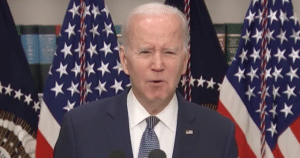Legal Fight Over US Watchlist Heads to Supreme Court
A significant challenge to the U.S. government's controversial watchlist has reached the Supreme Court, with plaintiffs arguing their civil rights are being trampled.
In the case of Kovac v. Wray, a group of citizens is challenging the constitutionality of the government’s watchlist, focusing on issues of legality and civil rights infringements, as the Washington Times reports.
The Council on American-Islamic Relations (CAIR) is advocating for a group of Americans who have requested the Supreme Court's intervention regarding the federal no-fly list. This case arose after the 5th U.S. Circuit Court of Appeals upheld the watchlist's legality, claiming it had backing from Congress.
Focus On No-Fly List's Legal Grounds
The plaintiffs, represented by CAIR, argue that the watchlist, which can dramatically affect individuals' lives, lacks explicit legal authorization. Adis Kovac, one of these individuals, experienced the watchlist's implications firsthand. He faced interrogation when attempting to board a flight, later discovering he was part of the no-fly list.
These Americans are pushing for removal from the list, claiming that its compilation contravenes federal law. They highlight that the government adds people for reasons that may not align with probable cause, such as visiting primarily Muslim countries or questionable associations.
Impact if Watchlist Inclusion Highlighted
Being on this list can severely restrict a person's life, affecting their travel plans, encounters with law enforcement during traffic stops, and even their rights to purchase firearms. Plaintiffs contend that such impacts are far-reaching and detrimental.
The appeals court, maintaining its position, stated that Congress sanctioned the list legally. However, the plaintiffs argue otherwise in their appeal, suggesting the appeals court ruling failed to pinpoint concrete legal language supporting the program's legitimacy.
Constitutionality Of Program Questioned
The case touched upon a key judicial argument: the scope and legality of government programs without clear legislative enactment. Justin Sadowsky, a senior litigation attorney with CAIR, voiced concerns about the ruling's implications.
"The 5th Circuit’s decision upholds a vast, opaque and intrusive government program," he stated. "If the government is going to run a sprawling multiagency program that destroys the lives of innocent Americans, the least our judiciary could demand is that Congress enact the program.” Sadowsky emphasized the absence of explicit Congressional action authorizing the program's current form. The appeals court, he claims, did not clarify any statutory language supporting such authority.
Supreme Court's Next Steps Crucial
To move forward, the Supreme Court justices will need to accept the case for oral arguments, requiring the approval of at least four justices. This step is crucial for the case to proceed, potentially influencing the future of the national watchlist.
Amid the legal proceedings, the Department of Justice has remained silent on the matter, opting not to comment publicly. Meanwhile, the plaintiffs await the Supreme Court’s decision on whether it will address their appeal. In their lawsuit, the plaintiffs argue that their rights are being infringed upon without proper legal grounding. They call into question whether people's lives can be impacted so significantly without a clear legislative framework supporting such measures.
Significant Implications for Civil Rights
The legal challenge has broader implications for civil rights and privacy concerns in the post-9/11 era. At its core, the case questions the balance between national security measures and individual freedoms guaranteed by law.
Whether or not the Supreme Court takes up the case could determine significant aspects of personal liberties and governmental authority in security-related issues. Plaintiffs hope to bring attention to what they perceive as overreach without due process or substantial evidence. If accepted, the court's review will probe deeper into the government's ability to enforce wide-ranging measures affecting citizens' everyday freedoms. The outcome could lead to changes in how watchlists are managed and challenge their legality in their current form.
Awaiting Supreme Court's Decision
As the legal battle progresses, organizations like CAIR aim to protect citizens' rights. The plaintiffs emphasize the importance of recognizing their grievances and the potential overstepping of authority.
For now, all eyes are on the Supreme Court as it weighs whether to hear what could become a landmark case influencing federal watchlist policies. The ruling could either solidify the current practice or push for significant changes in administrative transparency and accountability.




